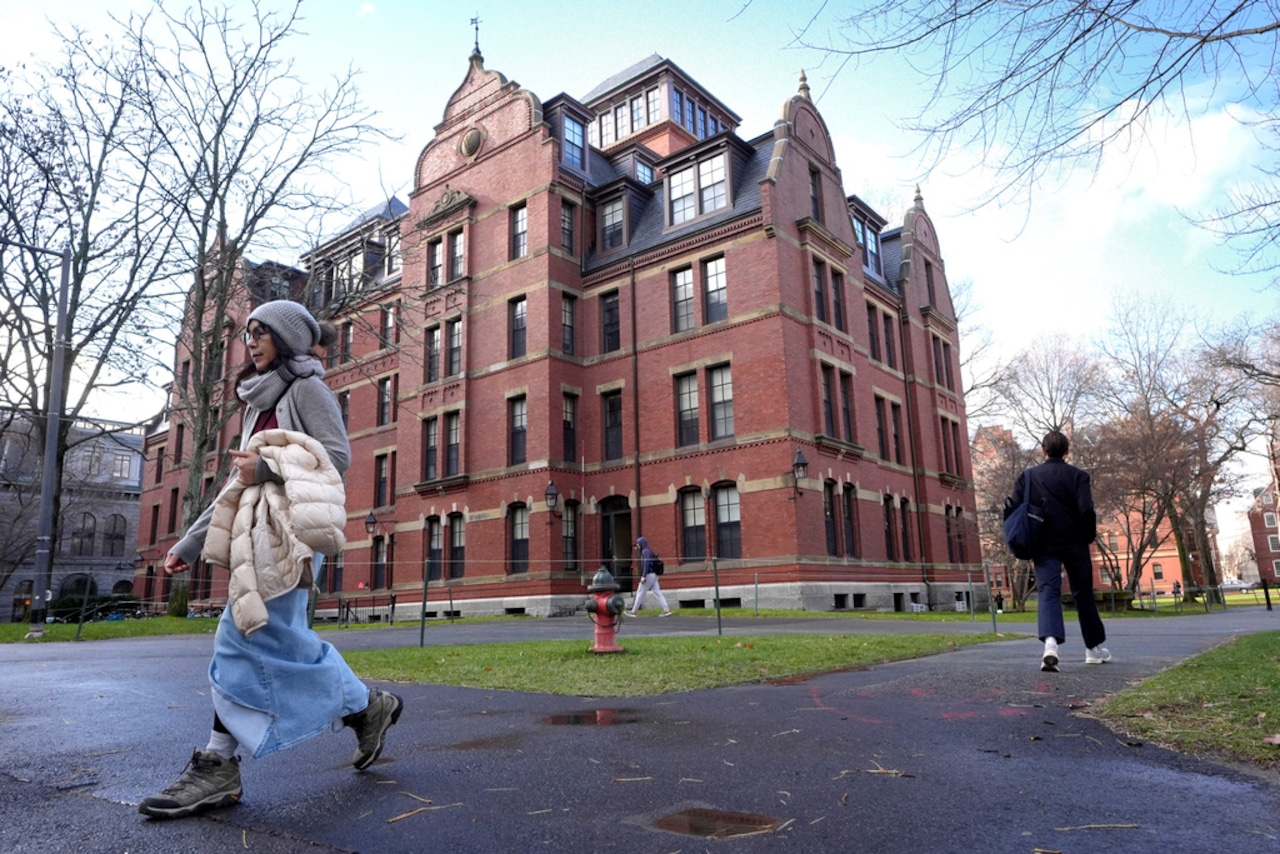A federal judge has granted Harvard University’s request for a temporary restraining order, blocking the Trump administration’s attempt to ban Harvard foreign students from entering the country, according to a Thursday evening court filing.
The request for a temporary restraining order came the same evening as the institution amended its lawsuit on Thursday evening in response to the proclamation from Trump and asked the court to “immediately halt” the enforcement of it.
“Once again, the Administration has sought to sever Harvard from its international students, with the inevitable and intended effect of wreaking havoc on the Harvard community, throwing into disarray every aspect of campus life,” the institution wrote in a request for a temporary restraining order.
“The government has done so not because of any concerns about the risks posed by those students — who (as the Proclamation says expressly) could be admitted to the United States if they sought to attend any other school in the country — but instead solely to punish Harvard and force it to yield to the Administration’s unlawful demands,” the institution continued.
Read more: Hong Kong school accepts Harvard transfer amid Trump conflict. Dozens more await
U.S. District Judge Allison Burroughs also extended a May 23 temporary restraining order to June 20. It was issued in response to the federal government attempting to revoke a key certification allowing Harvard to enroll international students.
In a letter to the community on Thursday evening, President Alan Garber said the Trump administration has been “singling out our institution.”
“Each of us is part of a truly global university community. We know that the benefits of bringing talented people together from around the world are unique and irreplaceable. International students and scholars make outstanding contributions inside and outside of our classrooms and laboratories, fulfilling our mission of excellence in countless ways. We will celebrate them, support them, and defend their interests as we continue to assert our Constitutional rights,” he said.
In addition to attempting to ban Harvard foreign students from entering the country, Trump asked Secretary of State Marco Rubio to consider revoking the visas of Harvard students already in the country.
What has happened at Harvard?
The institution has been in a battle with the federal government since April. There has been a wave of federal research grant terminations at Harvard, in addition to a $60 million in multi-year grants, $450 million cut and a $2.2 billion freeze.
U.S. Education Secretary Linda McMahon has also told the institution that the federal government would be barring Harvard University from acquiring new federal grants while the university continues to refuse to comply with the administration’s demands for change on its campus.
Read more: Funding cuts, lawsuits, foreign students: The latest on Trump’s war with Harvard University
Harvard President Alan Garber wrote in a letter to U.S. Secretary of Education Linda McMahon that they share the same “common ground,” but the university “will not surrender its core, legally-protected principles out of fear.”
Garber pushed back on the administration through a lawsuit in April. The institution argues that its constitutional rights had been violated by the government‘s threats to pull billions of dollars in funding if the school didn’t comply with demands for an overhaul. Following the $450 million announced cuts, the university amended its lawsuit.
“No government — regardless of which party is in power — should dictate what private universities can teach, whom they can admit and hire, and which areas of study and inquiry they can pursue,” the suit reads.
Due to the federal cuts, Harvard announced that it was committing $250 million of “central funding” to support research impacted by suspended and canceled federal grants.
“Each of us is part of a truly global university community. We know that the benefits of bringing talented people together from around the world are unique and irreplaceable. International students and scholars make outstanding contributions inside and outside of our classrooms and laboratories, fulfilling our mission of excellence in countless ways. We will celebrate them, support them, and defend their interests as we continue to assert our Constitutional rights,” he said.
